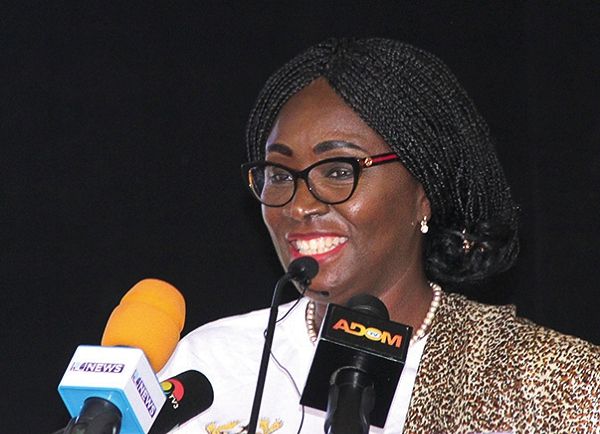
Remove tax on sanitary pads, panellists tell govt
Panellists in a menstrual hygiene management discussion have called on the government to remove the 20 per cent tax imposed on imported sanitary pads as that is making the product inaccessible to poor and vulnerable women and girls across the country.
According to them, the high cost of sanitary pads was making a lot of females use unhygienic materials such as pieces of cloth which could lead to infections if not properly sanitised.
They were speaking at the commemoration of this year’s Menstrual Hygiene Day in Accra yesterday.
Menstrual Hygiene Day (MHD) is commemorated globally on May 28 every year with the aim to break taboos surrounding menstruation.
The day is also to highlight the importance of good menstrual hygiene management (MHM) and raise awareness of the importance of good menstrual hygiene worldwide.
In Ghana, the day was marked with a panel discussion on MHM organised by the Ghana Education Service (GES), under the auspices of the Ministry of Education (MoE), with collaboration from the Ministry of Gender, Children and Social Protection, the Ministry of Health among others.
It was supported by donor partners, including the UNICEF and the Korea International Cooperation Agency (KOICA). The commemoration was on the theme: “It is Time for Menstrual Hygiene Management.”
Panel discussion
The panellists were the Director, Department of Children, Mrs Florence Ayisi Quartey; Ms Emily Otoo-Quayson, youth advocate; the Director, Guidance and Counselling Unit, GES, Ms Ivy Kumi; Ms Abigail Teye, another youth advocate and the Country Director, Days for Girls, Ms Appiah Boakye.
Mrs Quartey who started the discussions, argued that placing a 20 per cent tax on imported sanitary pads when there were no locally manufactured ones as alternatives, was discriminatory to females.
She said it infringed on their rights since menstruation was a natural occurrence which a woman or girl did not have any control over.
Mrs Quartey, therefore, called on the government to take another look at the tax on sanitary pad, as it was making it difficult for many females to buy them.
Ms Otoo-Quayson, for her part, announced that together with a colleague, she was in the process of manufacturing sanitary pads from banana fibre.
She corroborated the fact that the high cost of sanitary pads on the market was making it difficult for many females to get access to them.
In her contribution, Ms Kumi called for more education on menstrual hygiene to help demystify it so that girls would not feel ashamed to let others know that they were in their menses.
Ms Teye, for her part, called on parents to ensure that they educated their young girls on menstruation before they started experiencing it so as to help minimise the discomfort that they would have to go through.
In addition, Ms Boakye called for a holistic approach in making menstruation less traumatic for young girls in school through the provision of water and proper sanitary facilities.
Partnerships
The UNICEF Country Representative, Ghana, Ms Anne-Claire Dufay, in a solidarity message, said UNICEF Ghana was also making efforts through partnership with KOICA and Global Affairs Canada to support girls reach their full potential.
She said during menstruation, girls were susceptible and were likely to become anaemic if their diets had insufficient iron, adding that UNICEF was, therefore, supporting the government’s Girls Iron Folate Acid Tablet Supplementation (GIFTS) programme in 13 regions.
She said UNICEF was also lending support towards the development of minimum guidelines for WASH in schools which included specifications for toilet facilities with integrated changing rooms for girls who were menstruating.
The Deputy Minister of Gender, Children and Social Protection, Ms Freda Prempeh, at her turn, called on parents not to hide behind poverty and neglect the needs of their children.
She said some unscrupulous men were capitalising on their neglect and providing money for sanitary pads to lure young girls into amorous relationships.
Ms Prempeh, who is the New Patriotic Party Member of Parliament for Tano North in the Ahafo Region, said she and other colleagues were discussing the tax waiver on sanitary pads so that something could be done about it soon.
Writer's
